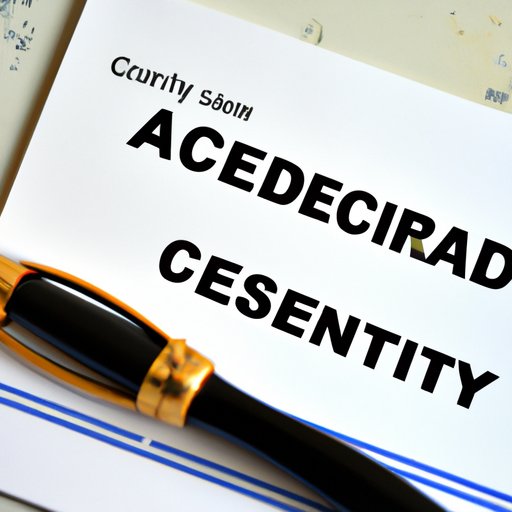I. Introduction
Are you receiving calls and letters from collection agencies, but unsure which one you owe? Being in debt can be overwhelming, and dealing with collection agencies can be stressful or confusing. But don’t worry, you’re not alone, and there are steps you can take to find out which collection agency is handling your account. Solving this problem is crucial to managing your debt and avoiding potential legal issues.
II. Researching your credit report
One of the best ways to identify which collection agency you owe is to review your credit report. Your credit report is a record of your credit and payment history and should include information about past-due accounts and collection agencies. You can access your credit report for free once a year from each of the three major credit bureaus: Experian, Equifax, and TransUnion.
When reviewing your credit report, look for accounts that are past due or have been sent to collections. The report should provide the name and contact information of the collection agency handling each account. Keep in mind that it’s possible to have accounts with multiple collection agencies, so be thorough in your review.
III. Contacting your original creditor
Contacting your original creditor can also help you identify which collection agency is handling your account. The original creditor is the company or institution that extended you credit or loaned you money before the account was sent to collections. It’s important to contact the original creditor because they may have information that the collection agency does not.
You can typically find the contact information for your original creditor on your billing statements or the company’s website. When contacting them, be sure to ask which collection agency is handling your account and for any other relevant account information. Keep notes of your conversation and any paperwork you receive.
IV. Checking your collection mails
If you’re receiving collection mails, be sure to review them carefully. Collection mails are letters or notices that collection agencies send to inform you of your past-due account and request payment. The collection mail should include the name and contact information of the collection agency handling your account.
It’s important to keep records of all collection mails you receive, including the envelopes they were sent in. This information may be useful if you need to dispute the debt or if the collection agency violates the Fair Debt Collection Practices Act.
V. Searching on the internet
If you’re still unsure which collection agency is handling your account, you can perform an online search. A simple internet search can often provide information about collection agencies and their contact information. You can also search for the name of the creditor and “collection agency” to see if any relevant information comes up.
Keep in mind that not all collection agencies may have an online presence, and there may be multiple collection agencies associated with your account. Therefore, it’s important to use other methods in conjunction with an online search.
VI. Consulting a debt attorney
If you’re having trouble determining which collection agency is handling your account, it may be time to contact a debt attorney. Debt attorneys specialize in helping individuals with debt issues and can be a valuable resource. They can review your credit report, billing statements, and collection mails to help determine which collection agency is handling your account.
Debt attorneys may also have access to tools and resources not available to the public, such as credit reporting software and legal databases. They can also assist you in disputing the debt, negotiating a payment plan, or representing you in court if necessary.
VII. Contacting a credit counseling agency
Another resource available to you is a credit counseling agency. Credit counseling agencies offer free or low-cost services to help you manage your debt and improve your credit score. They can also assist you in identifying which collection agency is handling your account.
Be sure to do your research and work with reputable agencies. You can check with the National Foundation for Credit Counseling or the Financial Counseling Association of America to find accredited counseling agencies. These agencies can provide you with a debt management plan, help you negotiate with creditors, and offer financial education and resources.
VIII. Conclusion
Dealing with collection agencies can be overwhelming, but it’s crucial to take action and determine which collection agency is handling your account. By researching your credit report, contacting your original creditor, reviewing collection mails, searching on the internet, consulting with a debt attorney, or contacting a credit counseling agency, you can find the information you need and take steps towards managing your debt and improving your financial situation.
If you’re having trouble managing your debt or need help finding a collection agency, don’t hesitate to reach out for help. There are resources available to you, and taking action now can save you time, money, and stress in the long run.
